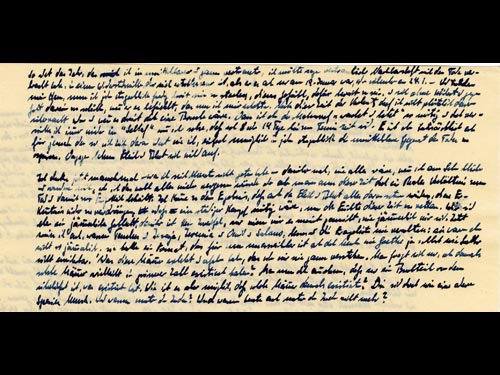The Meaning of Faith
Helmuth James Graf von Moltke was one of the members of the opposition against Hitler, whose views of resistance were most strongly based upon the basic tenets of his Christian faith. In April of 1942, he wrote his friend Lionel Curtis:
Perhaps you recall that I held the opinion in conversations before the war that belief in God is not essential to getting where we now are. I now know that I was wrong, completely wrong. You know that I have fought the Nazis from day one but the level of risk and willingness to make sacrifices that are demanded of us today and will perhaps be demanded of us tomorrow call for more than good ethical principles.
Moltke had studied the Bible more and more intensively during the war and attended worship and Bible exegesis regularly. As the earthly church, the congregation increasingly became the center of his life. His personal faith became more and more Christocentric.
He was never tempted to join the German Christian movement, which called for a Gospel sanitized of Jewish elements. Moltke’s belief in the “Jew Jesus” as Christ of the World did not allow any religious, racial or political anti-Semitism.
The excerpt from his letter of December 28-29, 1944 reveals how much Moltke was preoccupied with the issue of faith and how he reflected on his situation in the context of the entire biblical message.
After his arrest on January 19, 1944, his preoccupation with belief and theology intensified even more. Moltke read the Bible a total of five times as a kind of ongoing meditation on biblical and theological issues and worked his way through theology books, including forty-two of Luther’s treatises alone.
Presumably, he considered the Christian message to be a radical alternative to Nazi ideology, a foundation for another personal and social ethics and for another practical everyday life. To his fellow inmate Hanns Lilje, the Christian Moltke was therefore the most convinced and the most certain of all of us. His faith was completely solid and real. He had no trace of that kind of skepticism which is at times only overcome after struggle and effort, even by the most mature and religious men and women (Hanns Lilje, The Valley of the Shadow, Trans. by Olive Wyon, p. 70-71).
Source / title
- © Deutsches Literaturarchiv Marbach, von Moltke Estate

